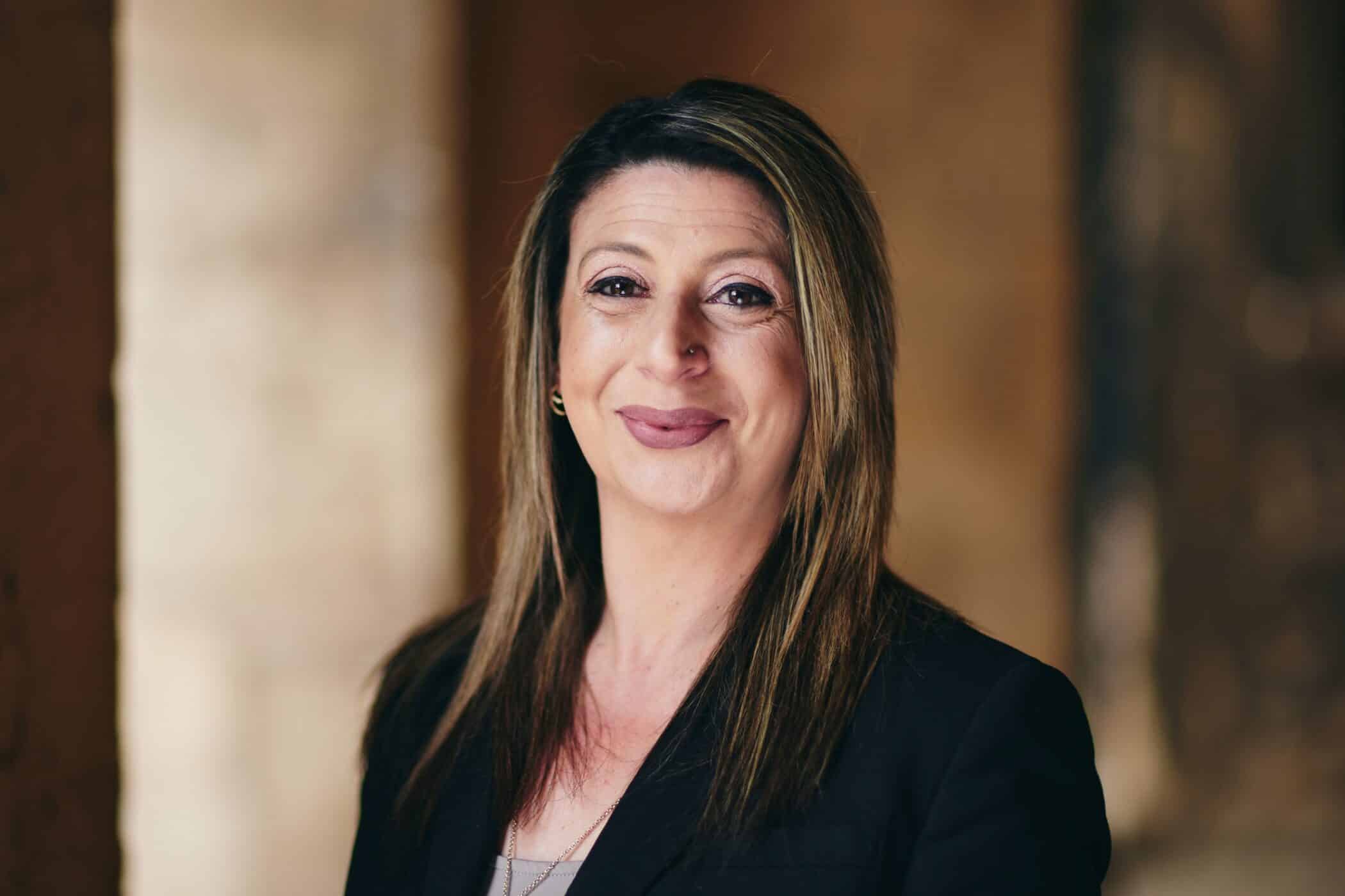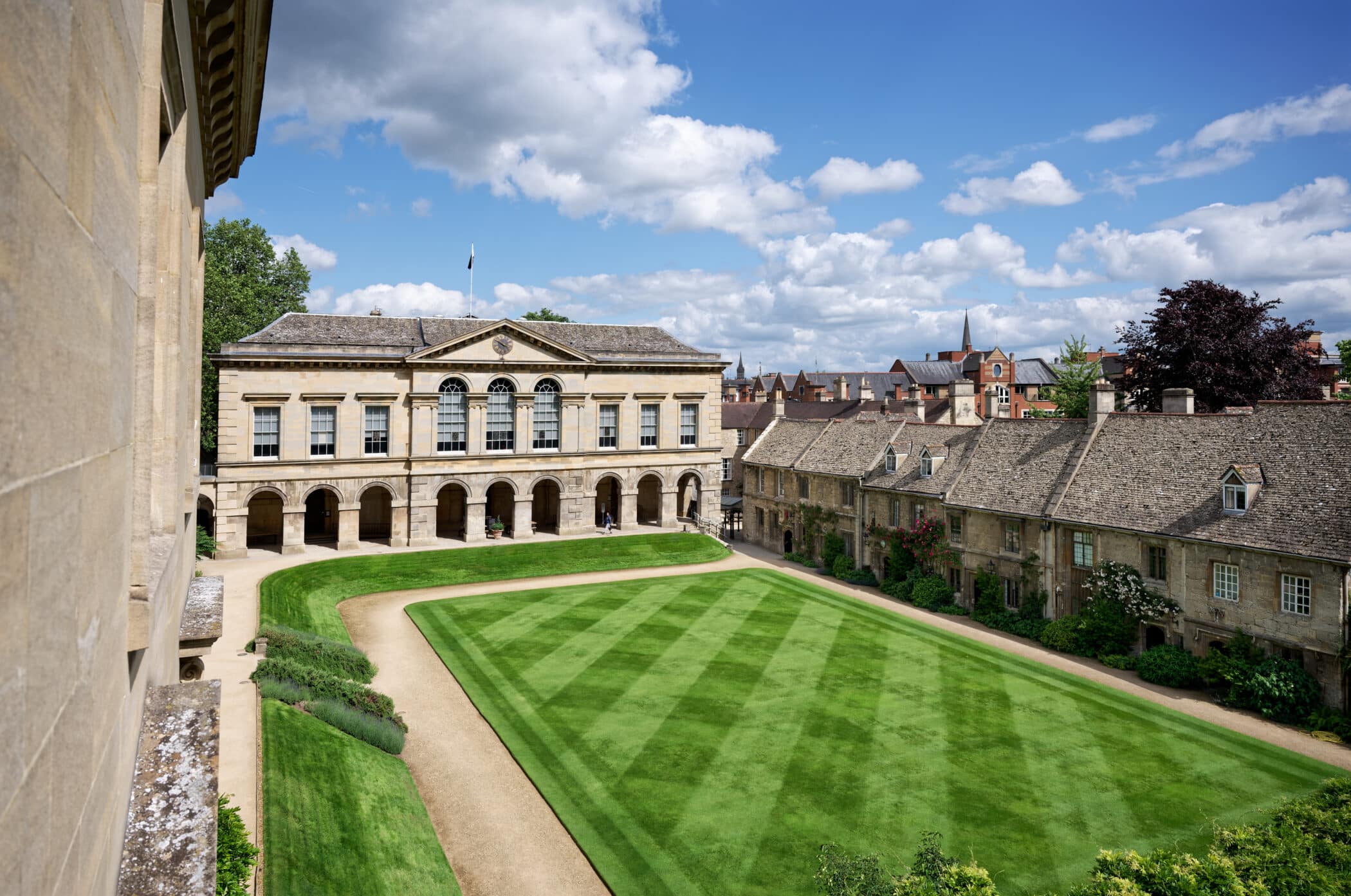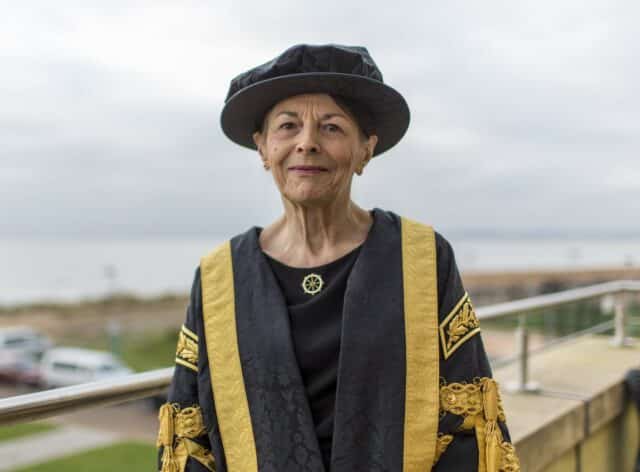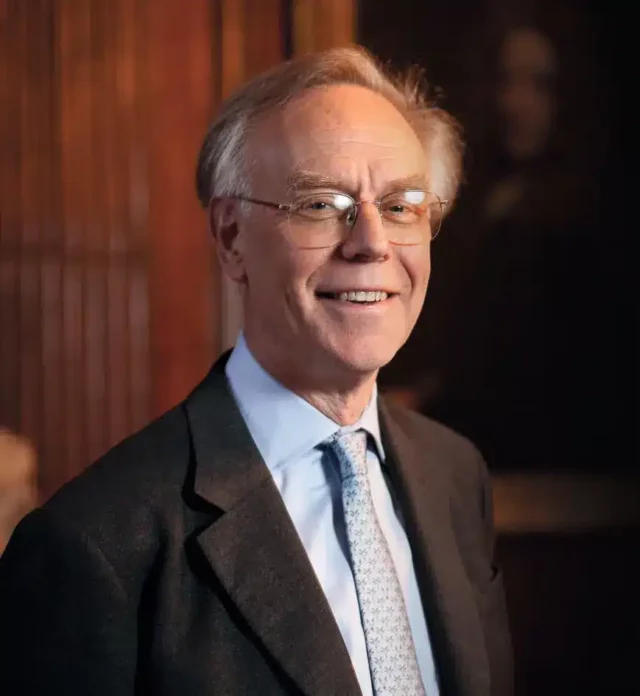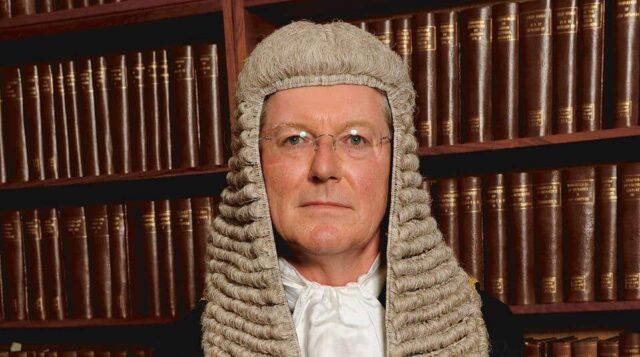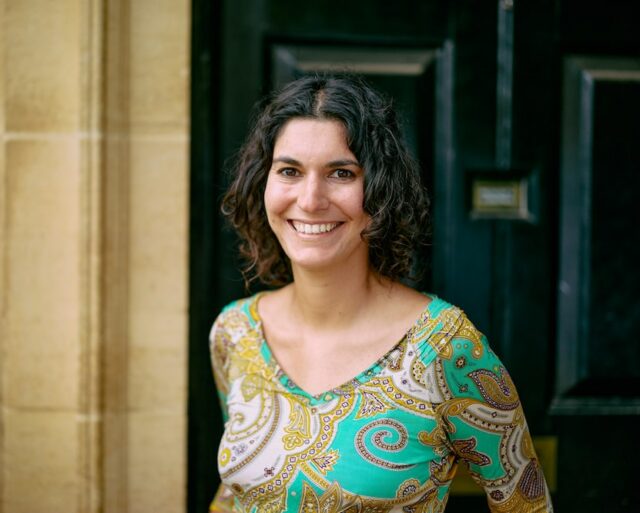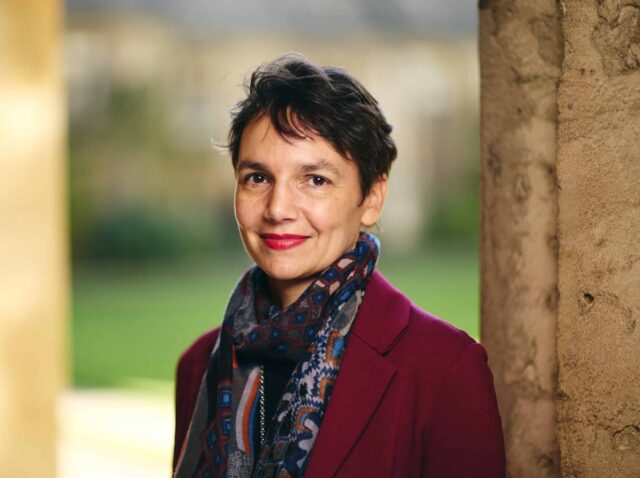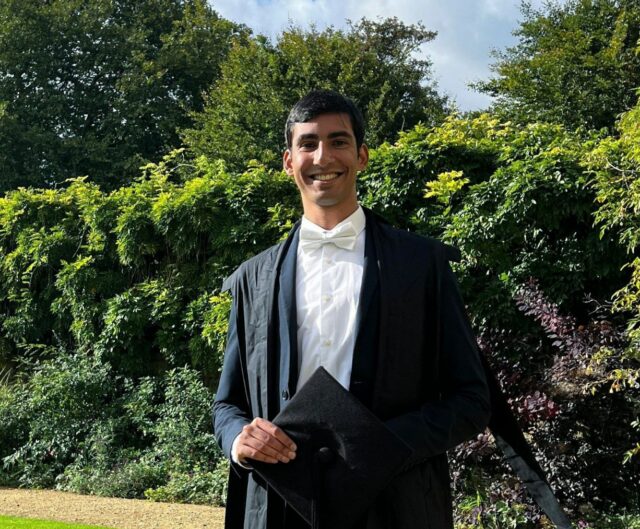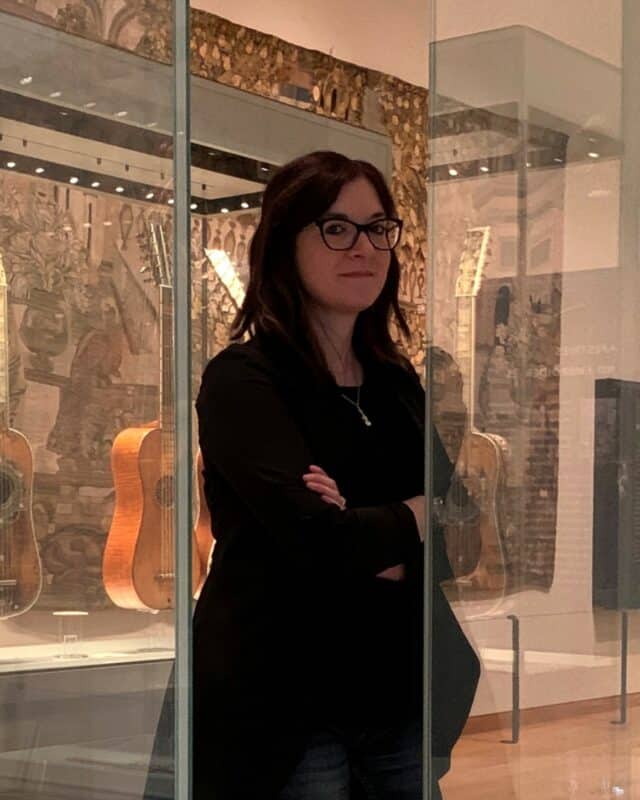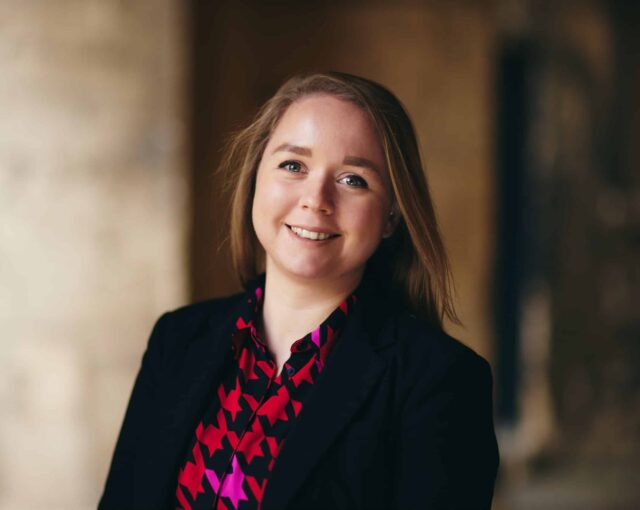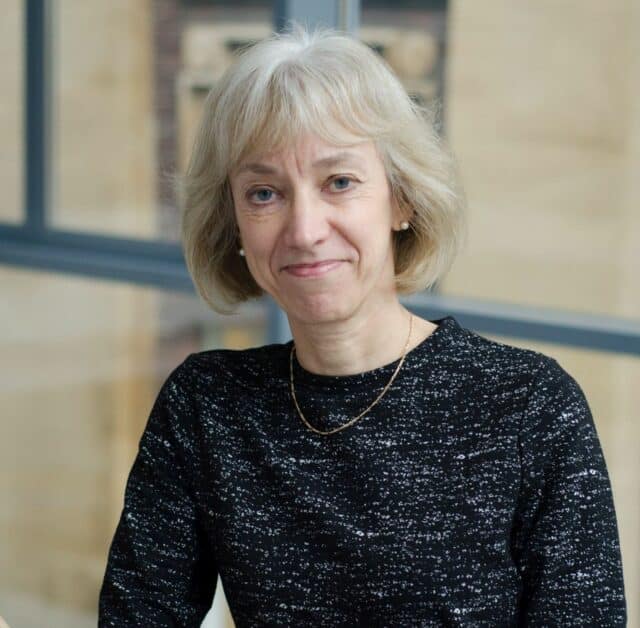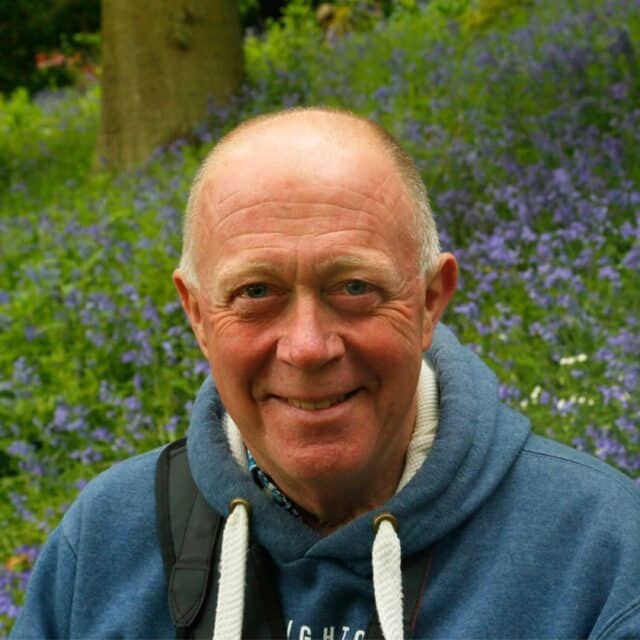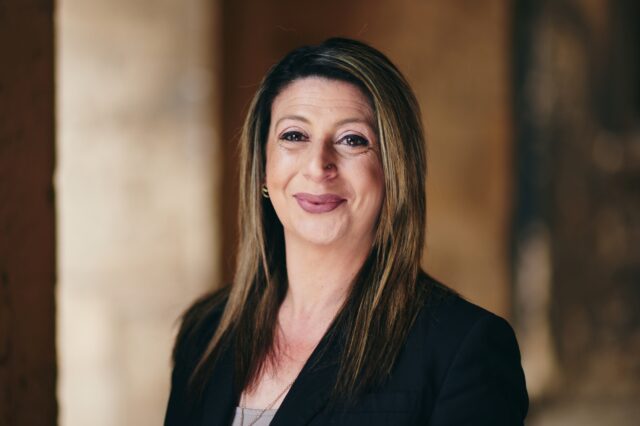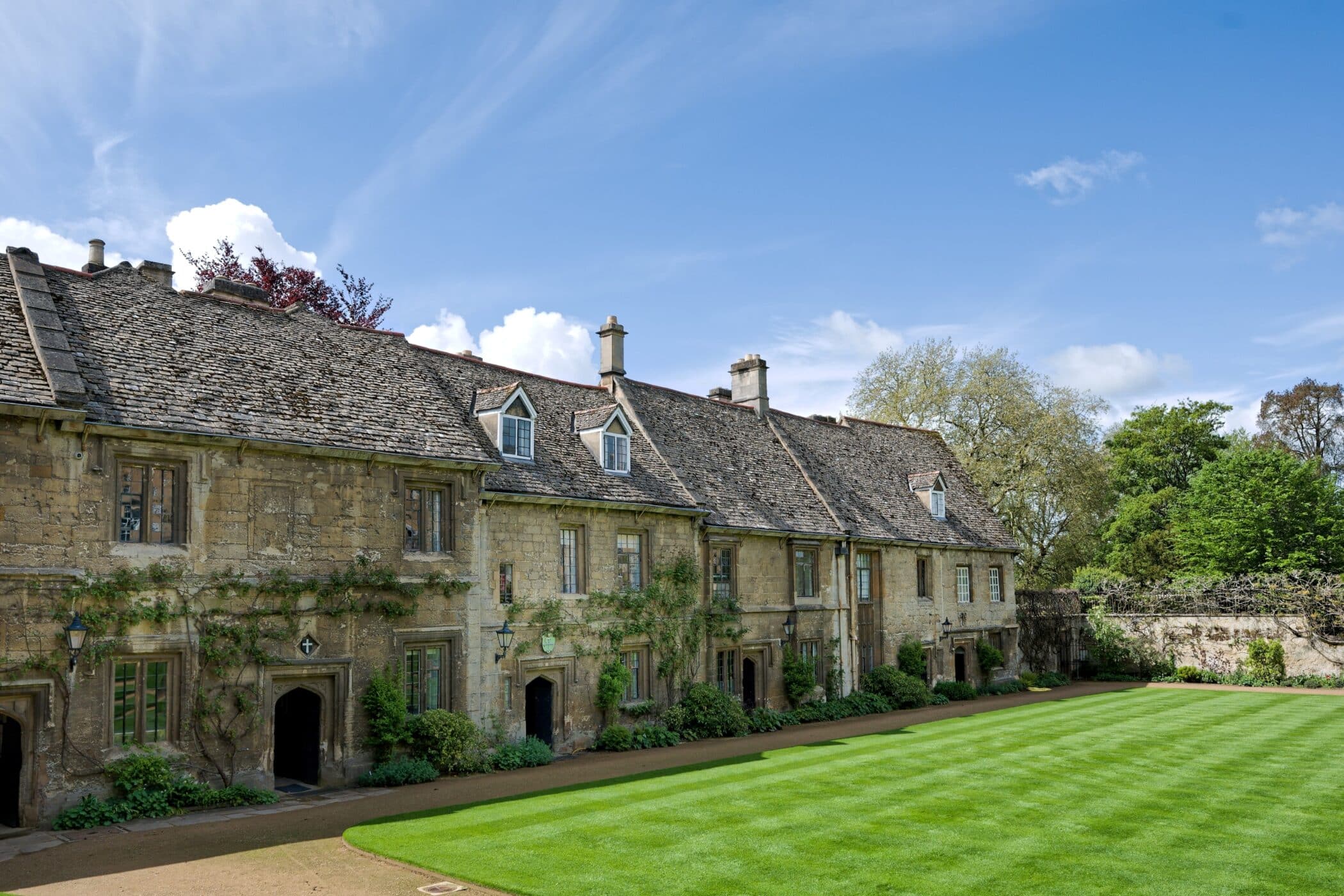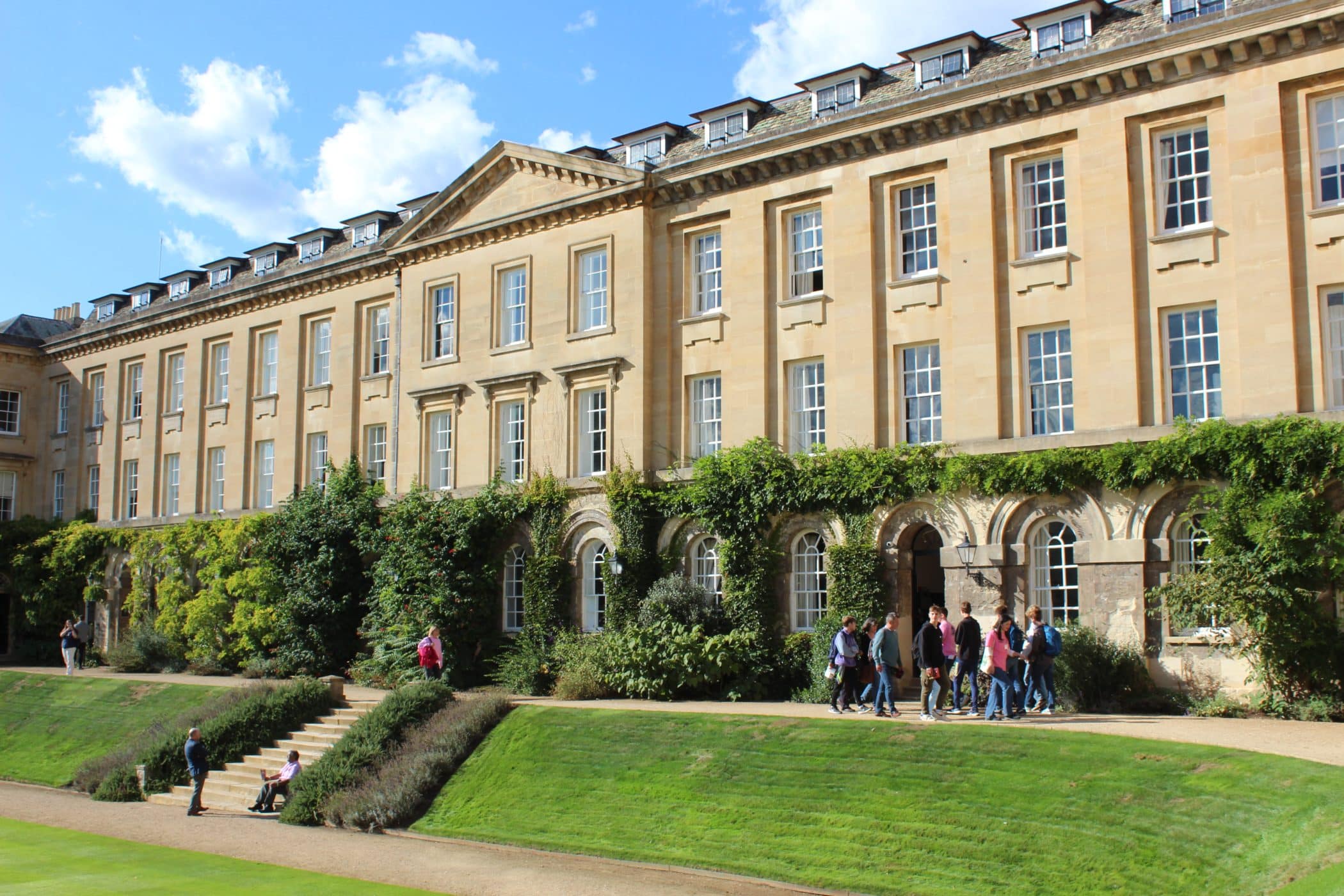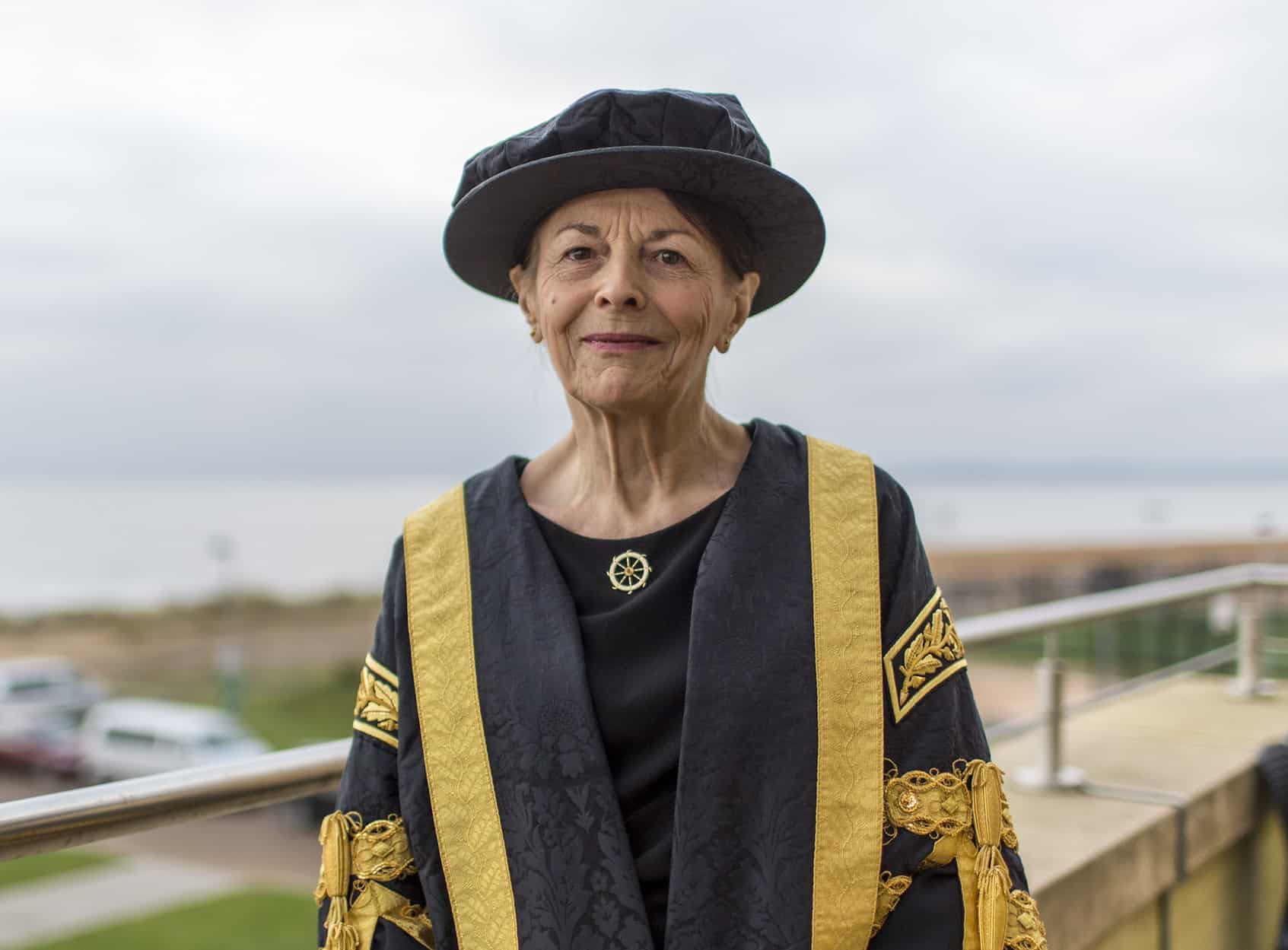
Professor Dame Jean Thomas DBE FRS FMedSci MAE FLSW
Honorary Fellow
Chancellor of Swansea University
Master of St Catharine's College, Cambridge (2007-2016)
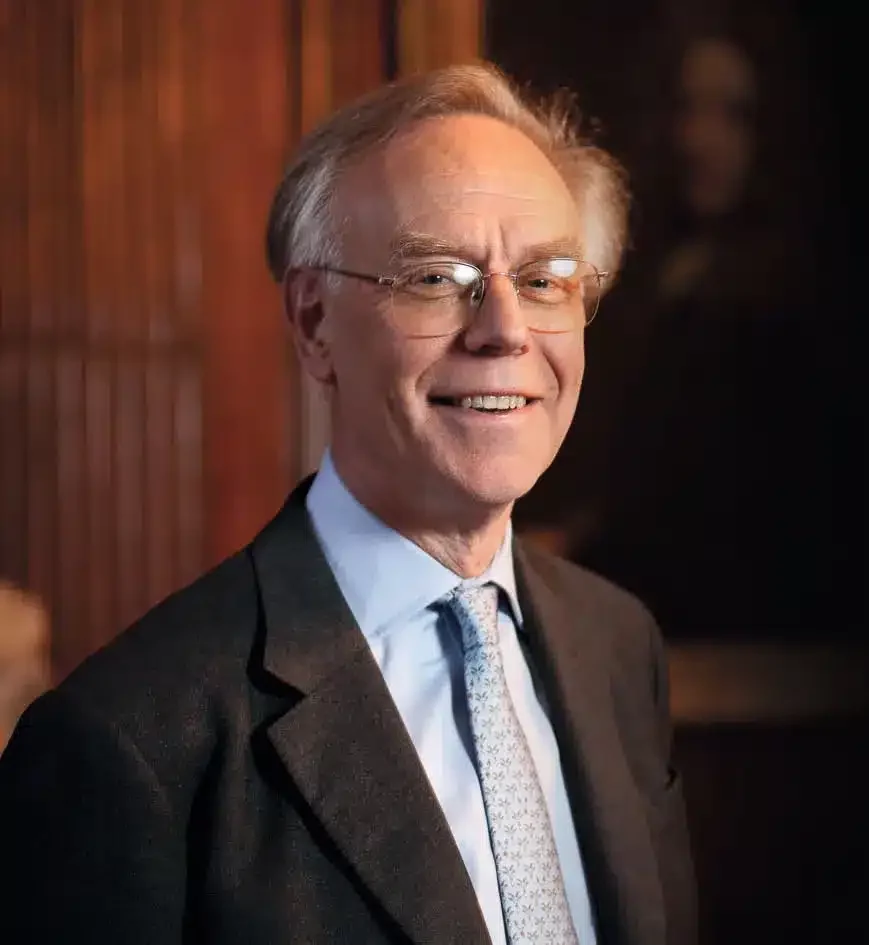
Sir Richard Thompson KCVO
Honorary Fellow
President of the Royal College of Physicians (2010-2014)
Education
1958, Medicine
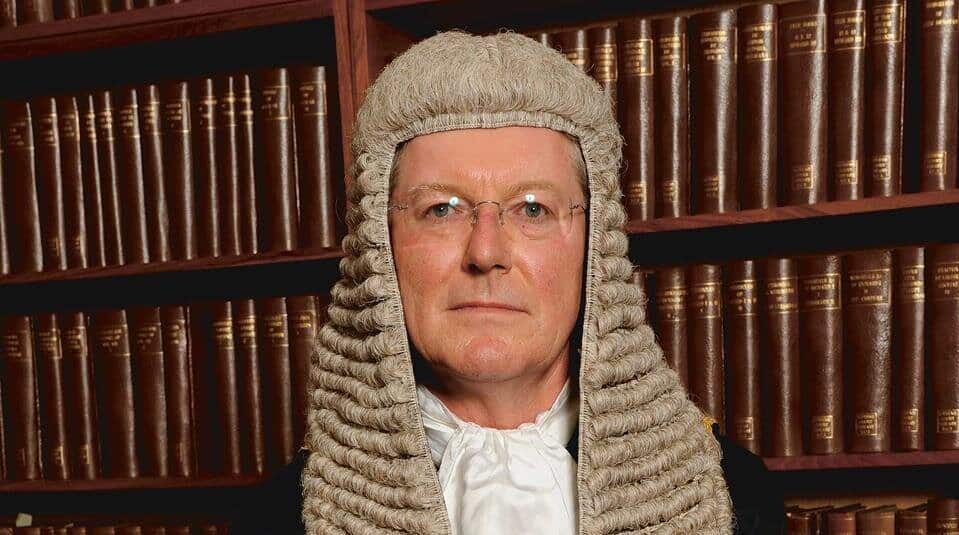
The Rt Hon. Sir Stephen Tomlinson KC
Honorary Fellow
Lord Justice of Appeal (2010-2017)
Education
1970, Law

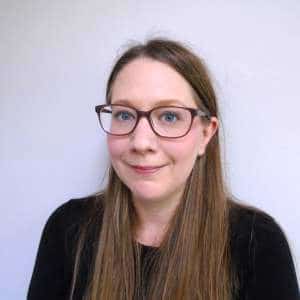
Fun fact
Leah spends most of her time doing her best to perpetuate Canadian stereotypes.
Dr Leah Trueblood
Career Development Fellow & Tutor in Public and EU Law
British Academy Postdoctoral Fellow, Bonavero Institute of Human Rights
Education
BA (Alberta), LLB (LSE), MSt DPhil (Oxford)
Leah is a Career Development Fellow in Public Law. She holds degrees in philosophy, law, and the philosophy of law.
She holds first-class degrees in philosophy from the University of Alberta and in law from the London School of Economics. She completed her DPhil research at Oxford in 2019. Her graduate work was funded by University College, Oxford and the Pierre Elliott Trudeau Foundation. She has been the recipient of grants from the John Fell Fund, the British Academy, and the Leverhulme Trust.
Leah teaches Constitutional and Administrative Law to undergraduate students for the College. She also teaches Constitutional Theory and Advanced Administrative Law to graduate Students for the Law Faculty.
Leah’s research is at the intersection of Public Law and Public Policy. She is particularly interested in referendums, political parties, and the role of scientific advice in democratic decision-making.

Dr Maria Tsakok
Fellow & Director of Graduate Entry Medicine
Supernumerary Fellow
Education
BA, BM BCh
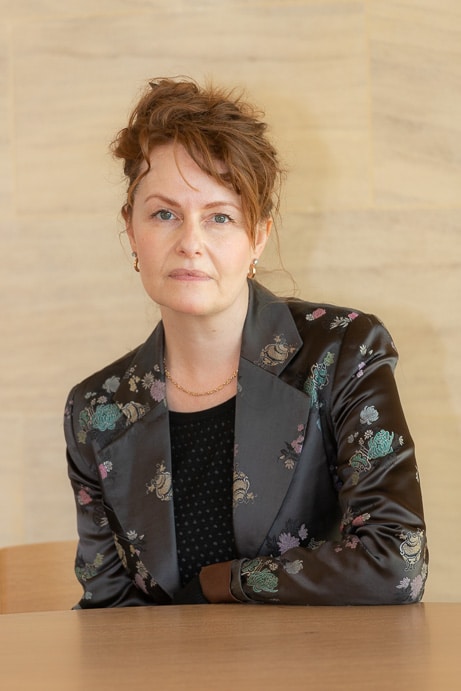
Professor Kate Tunstall
Sir Lindsay Owen-Jones Fellow in Modern Languages & Tutor in French
Clarendon Professor of French
Chevalier dans l’Ordre des Palmes Académiques
Education
MA MPhil PhD (Cambridge), MA (Oxford)
I have a longstanding commitment to and strong track record in widening participation in higher education. I was myself educated at a comprehensive school in South London and went from there to Cambridge, where I did a BA in French and German, including a year at the Université Paul Valéry in Montpellier. I did a PhD in French at Cambridge, and held a Kennedy Fellowship at Harvard from 1995-96. I am always delighted to receive UCAS applications from sixth-formers from non-selective state schools and colleges.
I teach undergraduates in lectures, seminars and tutorials, in both English and French, introducing them to a wide variety of texts and topics in French literature and culture from the sixteenth to the twenty-first centuries. I also teach translation into English.
I welcome applications from students wishing to study any aspect of French eighteenth-century writing, Enlightenment, Diderot, materialism, aesthetics. Doctoral students of mine have worked or are working on subjects as diverse as religious toleration and Bayle, Diderot and Lessing, biography and Ovid, eighteenth-century theories and practices of education, gender and sexuality in Rabelais and his reception, the history of plagiarism. I coordinate the early modern graduate exchange with the department of German and Romance Languages and Literatures at Johns Hopkins University, and the FribOx programme, which runs an annual conference with the Université de Fribourg (Switzerland).
My research expertise is in the literary history of the French eighteenth century, in particular the works of the philosophe, Diderot. I’m interested in literary materiality, the act of publication, practices of anonymity and pseudonymity, querelles, and in questions of contextualisation. I am currently trying to find time to write about the publication of the attentat on Louis XV, and to finish a material history of Diderot’s Regrets sur ma vieille robe de chambre.
I am currently the General Editor of the Journal for Eighteenth-Century Studies. I was the first Academic Programme Director for the Voltaire Foundation’s Besterman Centre for the Enlightenment, and co-steered the ANR-funded research collective, AGON. La dispute: cas, controverses et querelles à l’âge classique (Oxford-Paris-IV). I’m also a member of a number of international research groups, including the Groupe de Recherche Interdisciplinaire de l’Histoire du Littéraire (EHESS-Paris III).
Translation is an important part of my academic practice. I have translated or co-translated three works by Diderot: Letter on the Blind, Regrets on Parting with My Old Dressing Gown (with Katie Scott), and Rameau’s Nephew (with Caroline Warman). The latter, a free-access, multi-media edition, won the 2015 British Society for 18thc Studies Prize for digital resources. I have also translated the short story by Daudet, Mr Segwin’s Goat (in Littéraire).
I’m the author of Blindness and Enlightenment (2011), the editor of Self-Evident Truths? Human Rights and the Enlightenment (2012), and the co-editor of a number of collections of essays, including Naming, Renaming, and Un-Naming in Early Modern Europe (2013) and Women and Quarrels in Early Modern France (2022).
View all publications on the Faculty of Medieval & Modern Languages website
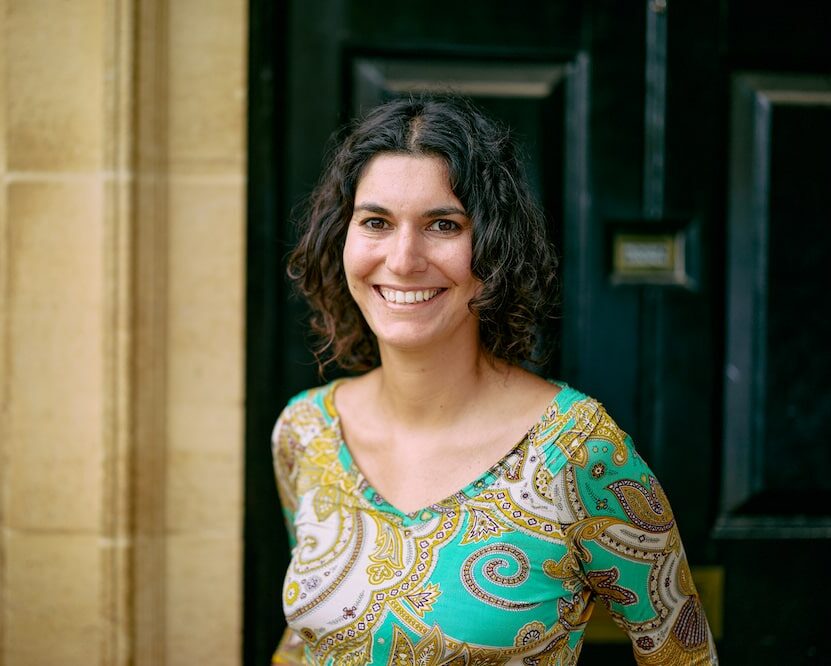
Dr Leila Ullrich
Supernumerary Fellow & Equalities Fellow
Associate Professor of Criminology
Education
BSc (LSE), MSc DPhil (Oxford)
Leila is an Associate Professor in Criminology at the Centre for Criminology and a Fellow at Worcester College. She works at the crossroads of international criminal justice, transitional justice, victimology, border criminology and counter-terrorism. She is particularly interested in how global criminal justice institutions create gendered and racialized subjects, and how these subjects (victims, refugees and racialized communities) engage with and resist these processes. She approaches these questions using feminist, decolonial, and critical political economy theories. She is also developing new bottom-up research methods such as qualitative WhatsApp surveying.
Before joining the Centre for Criminology, Leila was a Lecturer in Law at Queen Mary University of London and a British Academy Postdoctoral Fellow at the University of Oxford. In 2017, she received her DPhil in Criminology from the University of Oxford, which explored the International Criminal Court’s victim engagement in The Hague, Kenya and Uganda. Her monograph, The Blame Cascade: Justice for Victims at the International Criminal Court is forthcoming with Oxford University Press.
Outside the academy, Leila worked as social stability analyst on the Syrian refugee crisis at the United Nations Development Programme (UNDP) in Lebanon. She was also the Convenor of the Oxford Transitional Justice Research (OTJR) network and worked for the International Criminal Court (ICC). She is a member of the editorial board of Feminist Legal Studies.
Leila teaches ‘Criminological Theory and Criminal Justice’, ‘Transitional Justice’ and ‘Race and Gender’ on the MSc in Criminology and Criminal Justice, and convenes and teaches on the FHS Criminology and Criminal Justice option. She supervises DPhil students in her areas of research.
Leila is currently pursuing three research projects:
- building on her doctoral work, she analyses the labouring relationships that make and unmake international criminal justice from a social reproduction perspective
- she continues her British-academy funded research on the interplay between terrorism, counter-terrorism and gender based on fieldwork in Lebanon, Kenya and the UK
- she works on the possibilities and challenges of distant, digital and decolonial knowledge production based on her WhatsApp research with Syrian refugees in Lebanon
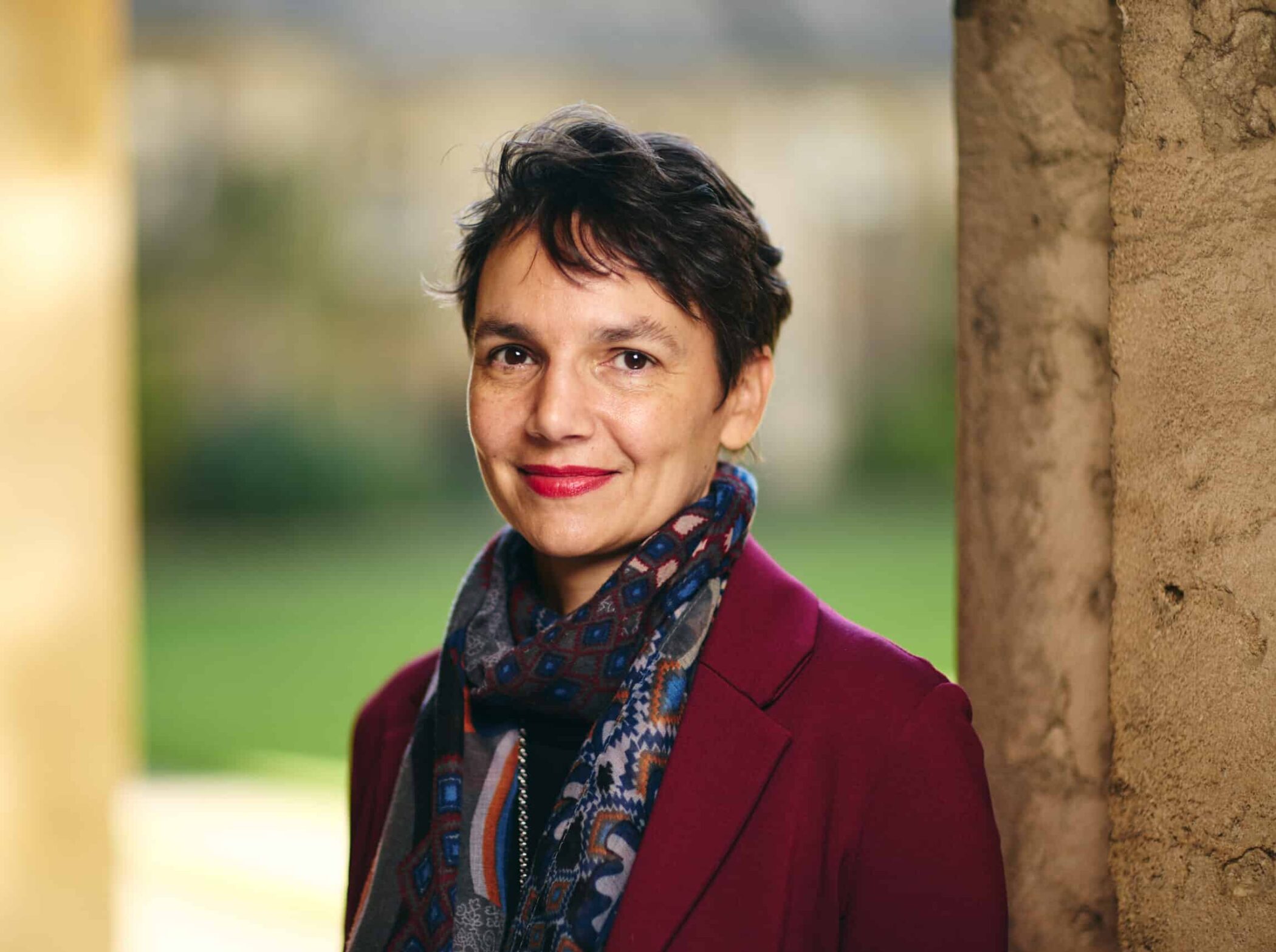
Dr Katharina Ulmschneider FSA
Senior Research Fellow
School of Archaeology Archivist
Education
DPhil (Oxford)
Dr Katharina Ulmschneider is a Senior Research Fellow in Archaeology at Worcester College Oxford, acting archivist at the School of Archaeology, Fellow of the Society of Antiquaries, and an Associate Member of the Society of Archivists. She has published widely on archaeological refugee scholars, medieval archaeology and economy, and on the impact of metal-detecting in archaeology. Her co-edited books Markets in Early Medieval Europe won the British Archaeology Book award in 2004, and Celtic Art in Europe was shortlisted Current Archaeology Book of the Year 2016. She is Director of the Historic Environment Image Resource (HEIR), an interdisciplinary photographic database set up to rescue endangered historic image collections and make them available to researchers and the public for free. She is currently finishing a book on Second World War refugee archaeologist Prof. Paul Jacobsthal.
Selected books:
- Ark of Civilization: Refugee Scholars and Oxford University, 1930-1945 (co-edited), 2017.
- Celtic Art in Europe: Making Connections (co-edited), 2014.
- Persecution and survival: the Paul Jacobsthal story (co-authored), 2012.
- Markets in Early Medieval Europe: Trading and Productive Sites, 650-850 (co-edited), 2003 reprint 2019.
Blogs:
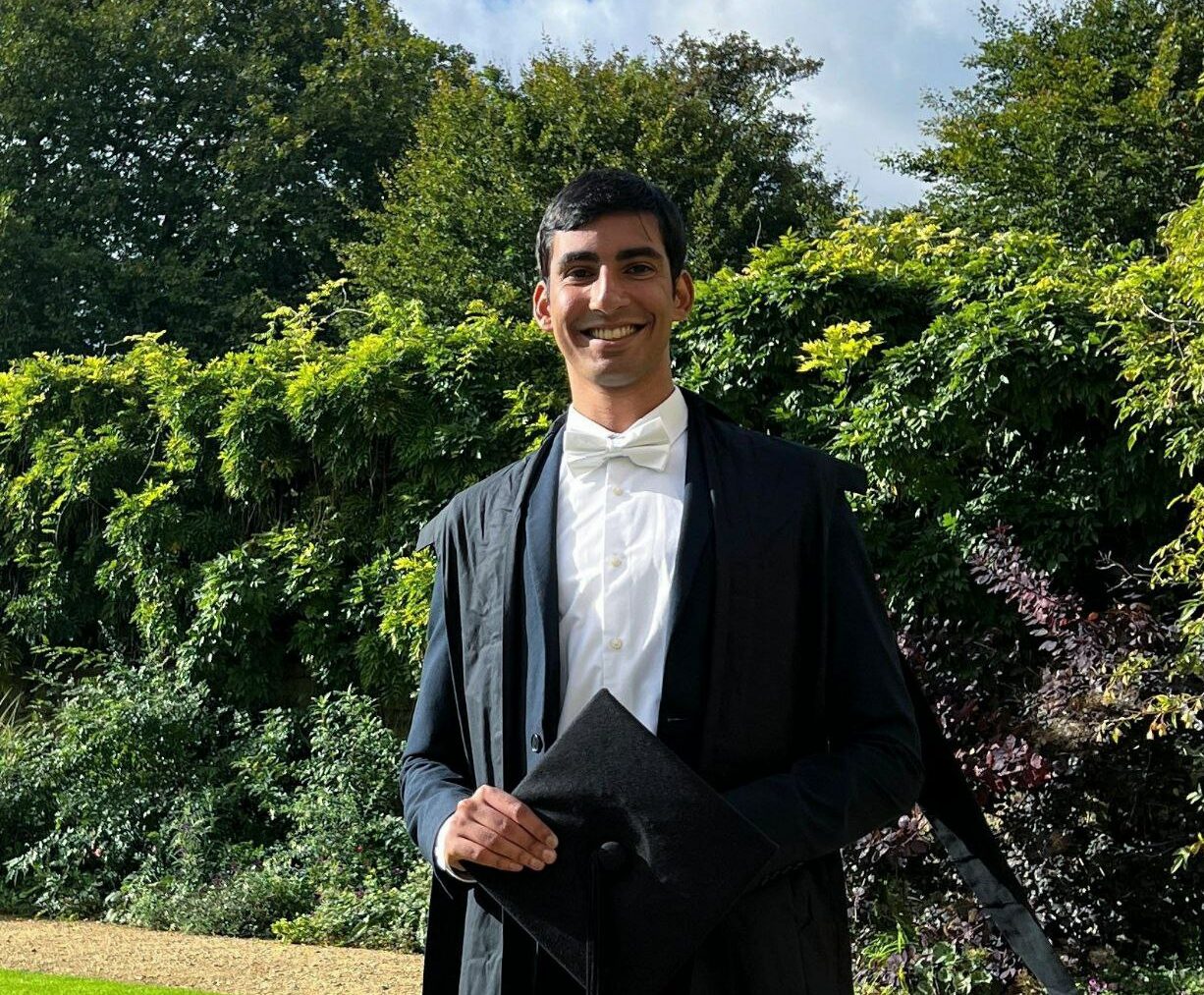
Ishaan Vadgama
College Lecturer in Engineering
Education
BA MEng (Cambridge)
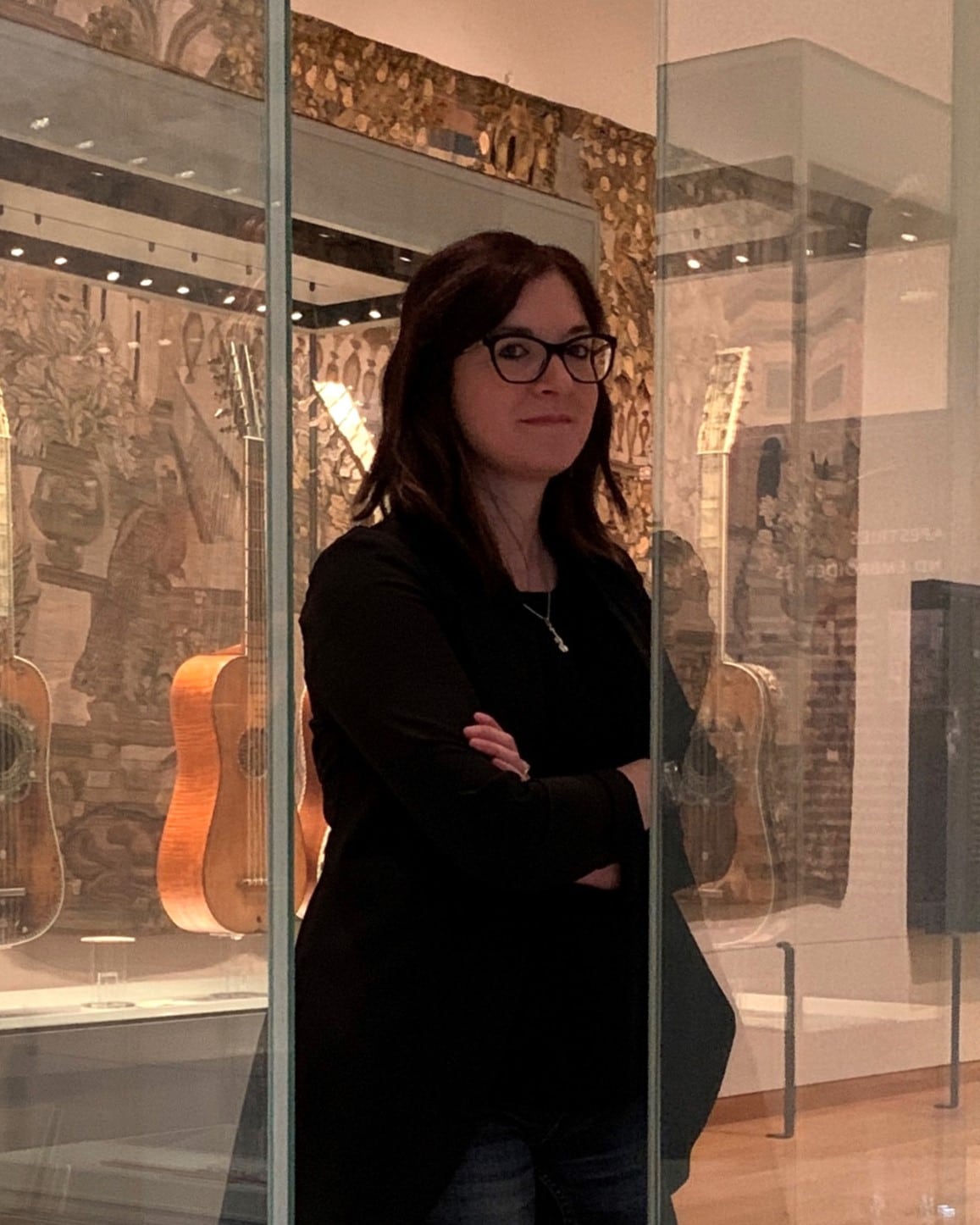
Dr Emanuela Vai
Senior Research Fellow and Head of Research (Humanities)
Head of the Bate Collection of Musical Instruments
Education
BA MMus MEd (Cambridge), MPhil PhD (St Andrews)
I am Head of Research (Humanities) and Senior Research Fellow at Worcester College, Hill Collection of Musical Instruments at the Ashmolean Museum; and I lead on all conservation, research and curatorial aspects at the Bate Collection of Musical Instruments at the University of Oxford. Previously, I have held positions at the University of Oxford as Scott Opler Fellow; at the University of Cambridge; at the Centre for Renaissance and Early Modern Studies at the University of York (CREMS); at the Centre d’études supérieures de la Renaissance de Tours (CESR); and at the Harvard Centre for Italian Renaissance Studies at Villa I Tatti, where I was Hanna Kiel Fellow.
My work has received the support of fellowships and grants from the British Academy, the Society for Renaissance Studies, the Royal Historical Society, the Renaissance Society of America, the Kress Foundation, the École Pratique des Hautes Études, the Academia Belgica and the Newton Trust at the University of Cambridge, among others.
I champion the public engagement of academic research, working across a diversity of cultural heritage and digital humanities projects, serving as consultant and advisor for international institutions and associations, with the aim of building and improving partnerships between academia, policy and industry for the study and preservation of tangible and intangible culture. I have appeared on several radio shows on these topics.
I also act as a mentor for early career researchers, and I serve as an advisory member for international cultural heritage projects in Europe and the US. At Oxford, I continue to serve as the Research Staff Representative for the Humanities Division and the Conference of Colleges, and I sit on the Humanities Research Committee and Divisional Board, as well as on Governing Body at Worcester College.
I am the Director in Humanities at AISUK, with the aim of promoting scientific collaborations between Italian and British academic institutions and research centres in the public and private sector, through scientific events and other initiatives such as mentoring and support for graduate students and junior researchers.
- Early Modern Music and Material Culture
- Early Modern History
- Museums, Musical Instruments and Material Culture
I am a cultural historian and digital humanities scholar working at the intersection of Early Modern History, Built Environment, Music, and Material Culture Studies. My research is located at the interdisciplinary intersection of art history, architectural history and music history and my publications focus on musical instruments, soundscapes, space and the senses in Renaissance social life. My work combines the analysis of historical materials with 3D virtual modelling, GIS platforms and acoustic analyses, to investigate the relationship between art, music, space and the senses in the Renaissance.
I am the founder and academic lead of the Digital Humanities and Sensory Heritage Network: Space, Objects and the Senses at TORCH, an interdisciplinary team of scholars working on digital humanities, musical instruments, space and sound from a variety of perspectives and across disciplines; and exploring the benefits and limitations of digital humanities methods for approaching and understanding historical sources, material objects and cultural heritage.
I am currently working on two main projects. The first explores the multiple sensory registers through which performative urban events and rituals were encountered and experienced in Early Modern Confraternities in the Venetian Terraferma. My second project, a monograph entitled Fantastic, Monstrous and Marvellous Musical Instruments of the Global Renaissance, explores the carvings of human and nonhuman figures, monsters and grotesque creatures on the scrolls and headstocks of stringed musical instruments. This work, based at the Ashmolean Museum at Oxford, has been funded by the British Academy/Leverhulme Trust and the EU Commission, and constitutes the first comprehensive study of these decorative elements, exploring what they say about the visual, material and non-auditory dimensions of Renaissance music culture.


Dr Rachel Varughese
College Lecturer in Medicine
Education
MA, BM BCh
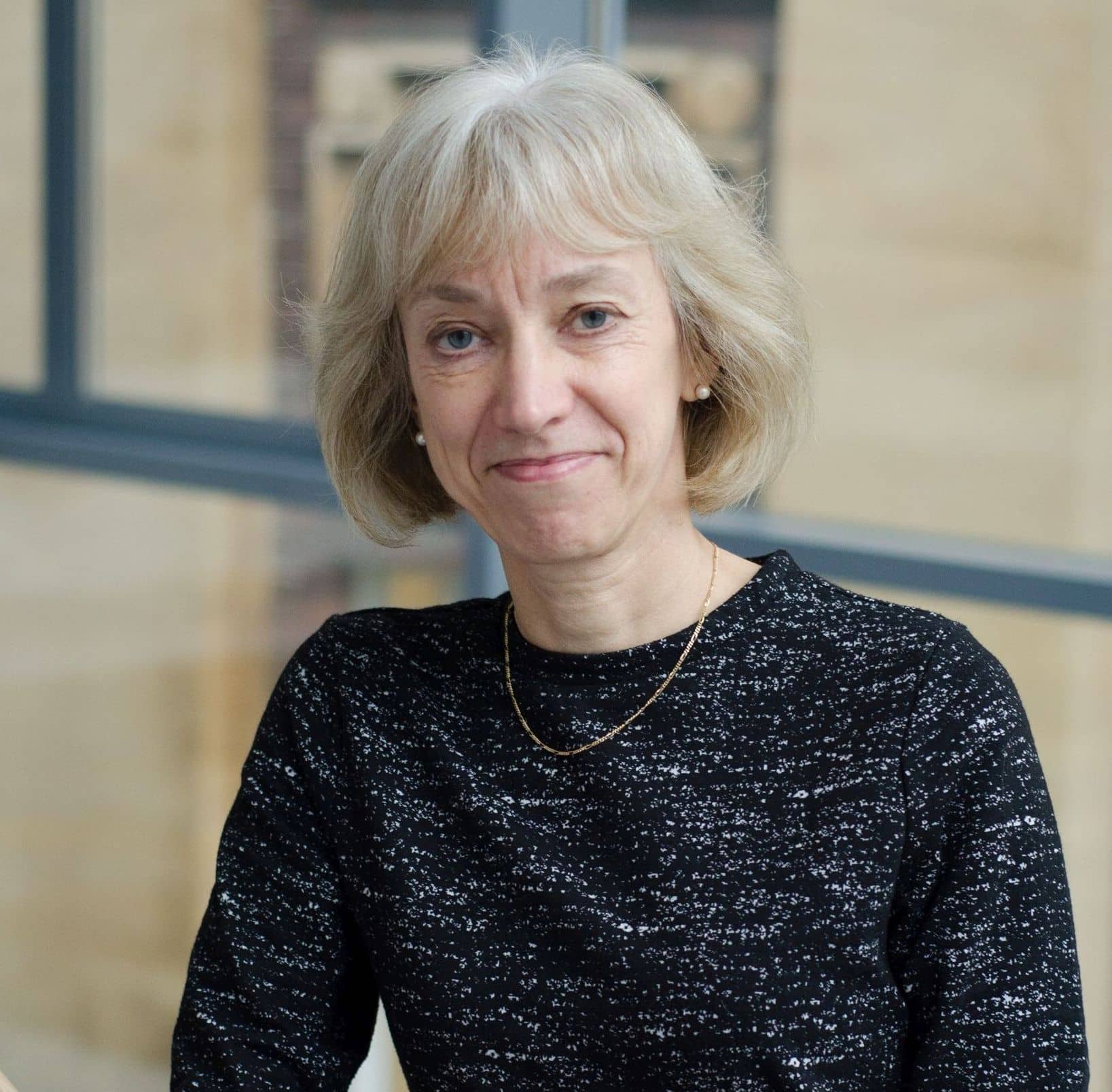
Professor Heather Viles
Senior Research Fellow
Professor of Biogeomorphology and Heritage Conservation
Associate Head of Social Sciences Division (Research)
Education
MA (Cambridge), DPhil (Oxford)
Heather Viles is a geographer with major interests in geomorphology and heritage science. Much of her research focuses on the application of science to heritage conservation. She is Associate Head (Research) for the Social Sciences Division, Professor of Biogeomorphology and Heritage Conservation; Oxford lead and Co-Director of the EPSRC Centre for Doctoral Training in Science and Engineering in Art, Heritage and Archaeology (SEAHA); and Honorary Professor at the Institute of Sustainable Heritage, University College London. She leads the Oxford University Heritage Network.
Heather obtained an MA in Geography from the University of Cambridge, and a DPhil from the University of Oxford. Her DPhil thesis focused on the role of microorganisms in weathering limestone and was based on fieldwork on Aldabra Atoll in the Seychelles. After completing her DPhil, she undertook post-doctoral research on the contribution of acid rain to the deterioration of English cathedrals.
Heather was awarded the 2015 Ralph Alger Bagnold Medal from the European Geosciences Union for her role in establishing the field of biogeomorphology and the 2019 Melvin G. Marcus lifetime career award, Geomorphology Specialty Group, American Association of Geographers. In 2020 Heather was awarded the Founder’s Medal by the Royal Geographical Society with IBG. She is also a Fellow of the British Society for Geomorphology.
Heather has considerable academic administrative experience, having been Director of Undergraduate Studies (2008-2011), Director of Research (2012-2015), and Head of the School of Geography and the Environment (2015-2019), as well as Vice Provost of Worcester College (2012-2014). She is now President of the British Society for Geomorphology (2019- ), having previously been Chair from 2012 to 2014. From 2008 to 2011, she was Vice-President (Expeditions and Fieldwork) of the Royal Geographical Society with IBG. She was on the advisory panel of the £6.5 million AHRC/EPSRC Science and Heritage Programme from 2008-2012, and was also a member of the National Heritage Science Strategy steering group co-ordinated by English Heritage and charged with developing a UK-wide Heritage Science Strategy to shape UK-wide policy over the next 25 years. Heather also represents the University of Oxford as a trustee of the Oxford Preservation Trust. She is one of the Senior Editors of Earth Surface Dynamics, having served for 6 years as an Associate Editor of Earth Surface Processes and Landforms, and is also on the editorial boards of Transactions, Institute of British Geographers and Atmospheric Environment.
Over the years, Heather has carried out field-based research in NW Australia, South Africa, Namibia, Washington State, the Atacama Desert in Chile, South Germany, the Sahara Desert in Libya and NW China, as well as many places within the UK.
Heather welcomes applications from students wishing to undertake graduate research in any aspect of biogeomorphology and heritage conservation.
Heather’s research is highly interdisciplinary and involves studies at the interface of geomorphology with ecology, engineering geology, environmental chemistry and materials conservation. In recent years she has focussed on three specific themes in her research, namely:
- Biological contributions to geomorphology
- Weathering, geomorphology and landscape evolution in extreme environments (hyper-arid, coastal, cold, and Mars)
- Building stone decay and conservation
She maintains a strong interest in developing and applying novel techniques and ideas to the study of these themes, including 2D resistivity surveys using Geotom equipment, and the Equotip hardness tester. Heather also has a strong interest in the practical applications of ‘green’ methods of conserving cultural heritage (using plants, animals and microorganism communities) and linking this to biodiversity conservation.
Heather runs the Oxford Resilient Buildings and Landscapes lab (OxRBL) which has extensive laboratory facilities and a field test site at Wytham Woods near Oxford.
In recent years her research has been funded by EPSRC, AHRC, the Leverhulme Trust, University of Oxford Fell Fund, Historic England, the Royal Society and NASA.

Dr Alice Violet
Besse Fellow & Lecturer in French
Education
BA MA DPhil (Paris IV)
My main research interests lie in the fields of corpus linguistics, contrastive linguistics (French-English), phraseology, Construction Grammar and language attitudes. I am particularly interested in linguistic phenomena at the interface between lexis and grammar, and my doctoral thesis, which was a corpus-based investigation of determination in certain French and English prepositional phrases, drew on insights from recent phraseological and constructional work in order to shed light on a problem that had, until then, primarily been treated as purely grammatical. I am also interested in the semantics of prepositions and adverbials, and in discourse markers and connectives. I am currently working on my first book project, which expands on the findings of my doctoral research. My next research projects focus on foreign language teaching (phraseodidactics) and computer-mediated communication (prescriptivism in online interactions).
I teach undergraduates at Worcester College (French grammar ; translation into French ; French essay ; oral practice ; listening comprehension). I have previously taught linguistics and English at the University of Paris IV-Sorbonne, and French at the University of Cambridge (MML faculty, Selwyn College and Homerton College).
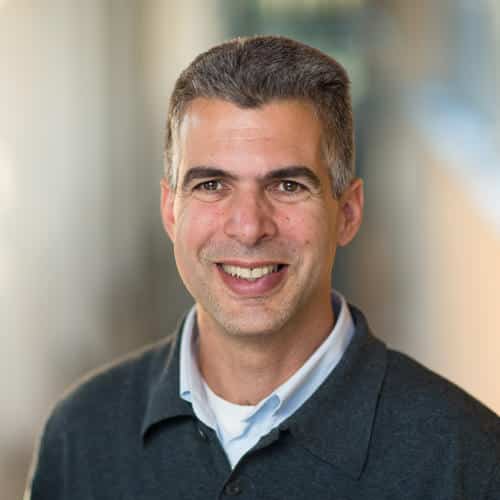
Dr Nir Vulkan
Lloyd’s Research Fellow & Tutor in Management Studies
Associate Professor of Business Economics
Education
BSc (Tel Aviv), MA (Oxford), PhD (London)
Nir is a leading authority on fin tech, e-commerce and market design, and on applied research and teaching on hedge funds. Alongside his role at Saïd Business School, Nir is also a Fellow of Worcester College and a member of the Oxford Man Institute for Quantitative Finance.
In 2020 Nir chaired the Banking and Finance Committee on Ethical AI, which made recommendations to the European President and Parliament. Nir was also a member of the Insurance Committee on Ethical AI. Nir engages widely with industry: he acts as a consultant to technology companies and has developed software for specific applications within companies. He has developed models widely used in e-commerce, trading and hedge funds. Nir travels extensively to give seminars and talks and to participate in conferences, and has spoken at numerous universities in Europe, the Middle East and the USA. He acts as referee for a number of academic journals on economics.
Nir has a BSc in Mathematics and Computer Science from Tel Aviv University and gained a doctorate in Economics at University College, London, where he was awarded the Dean Scholarship for excellence in PhD studies. He became a Lecturer at Bristol University in 1997, and in 2001 moved to Saïd Business School. He was the Executive Director of the Oxford Centre for Entrepreneurship between 2009 and 2011 and the co-founder and Director of OxLab, a laboratory for social science experiments, both at Saїd Business School.
Nir created the first UK course on fin tech in 2016 which runs annually as an MBA and EMBA elective. Nir created the first UK course on fin tech in 2016 which runs annually as an MBA and EMBA elective. Before that he wrote and developed the core Managerial Economics course for the MBA and EMBA programmes.
He has also been involved in designing and developing the Entrepreneurial Project and now runs this course. He supervises DPhil and MPhil students. He has also taught a popular MBA elective course on hedge funds and trading, and a course on e-commerce.
Nir believes that students learn by doing, and therefore games, role-plays and projects form a large part of his courses. The Managerial Economics course features a trading game, while both this course and the Entrepreneurial Project draw on current case studies, which are discussed and analysed by students.
Nir is also the course convenor for two new online programmes: Fintech and Algorithmic Trading.
In 2003 Nir wrote one of the leading texts on the microeconomics of e-commerce, The Economics of E-Commerce: A Strategic Guide to Understanding and Designing the Online Marketplace. In 2013, Nir edited, with Al Roth and Zvika Neeman, The Handbook of Market Design. The handbook contains a selection of the latest research in the growing field of market design, and draws on Vulkan’s interest and expertise in markets, both virtual and those confined to particular geographical locations. He is particularly interested in how lessons from successful and unsuccessful markets can be learned and transferred to different environments. Part of the book examines issues raised by the fact that the internet is now the preferred platform for most markets, and the wide choice this gives consumers. He also examines markets linked to geography where participants have little choice.

Dr Natalia Waights Hickman
David Mitchell Fellow & Tutor in Philosophy
Associate Professor of Philosophy
Education
MA (Reading), MA DPhil (Oxford)
My work falls mainly within contemporary philosophy of language, epistemology and philosophy of action. Most of my research relates either to linguistic (especially semantic) knowledge or to practical knowledge and skill, and sometimes to connections between these. More broadly, my work engages with theories of normativity in relation to skill, factual knowledge, thought and reasoning, and linguistic communication. I also have a general interest in the work of Gilbert Ryle, especially his relatively neglected work on thinking and improvisation.
I teach the undergraduate finals papers in Knowledge and Reality, Philosophy of Logic and Language, Wittgenstein, Philosophy of Mind, and Ethics. I will also be teaching first-year General Philosophy and Introduction to Logic. In Michaelmas 2019, I will be teaching a graduate (BPhil) class on Knowledge, Reason and Action, with Prof. John Hyman.
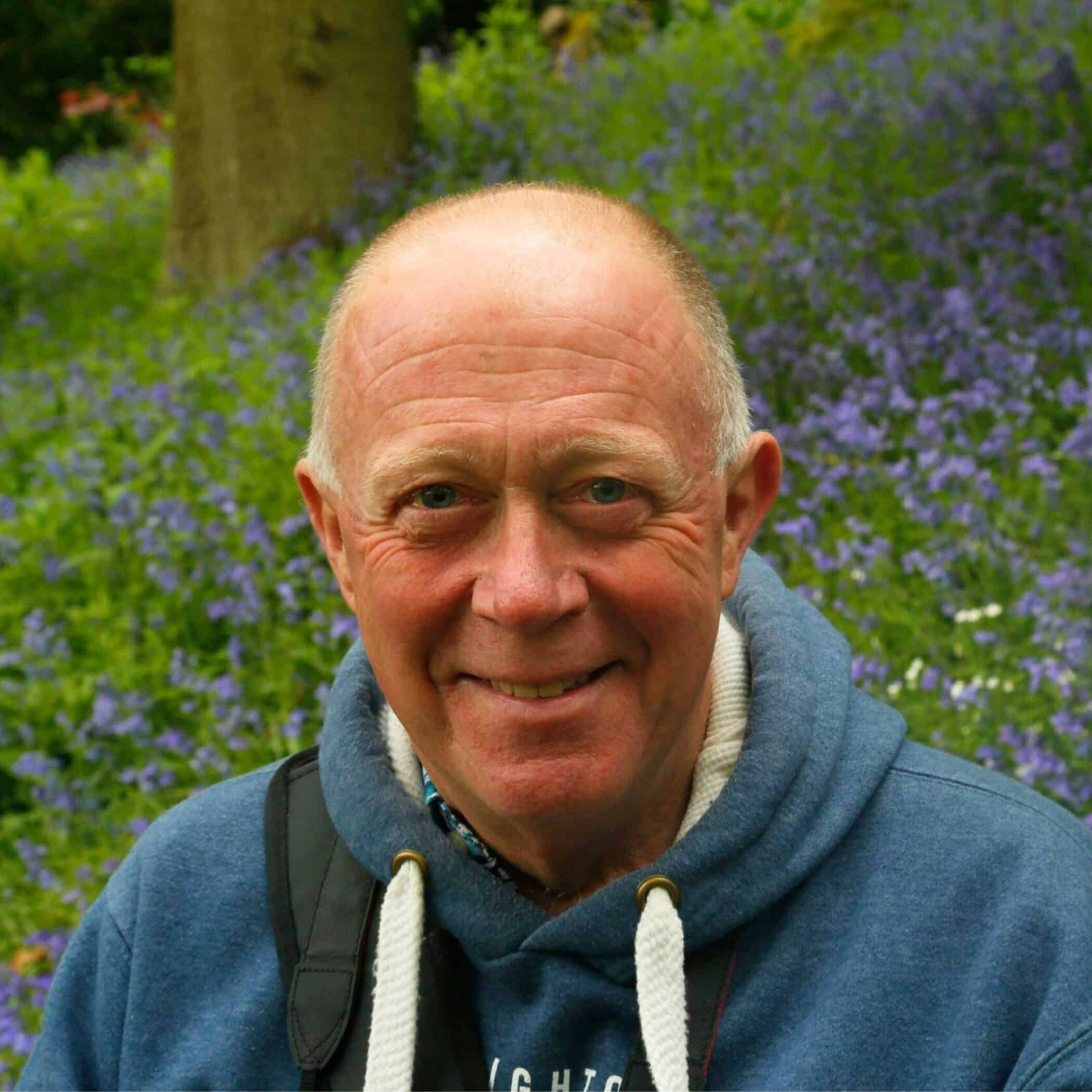
Fun fact
Timothy’s marathon PB is 3:22 (but it was many, many years ago)
Timothy Walker FHEA
College Lecturer in Biology
Education
MA, MHort, PGDipLATHE
Timothy Walker was Director of the University of Oxford Botanic Garden between 1988 and 2014. He has been a stipendiary lecturer at Somerville College since 2014 and at Worcester since 2023.
Timothy teaches plant biology including conservation, evolution, pollination, and sustainability.
- Plants: A Very Short Introduction (Oxford University Press, 2012)
- Plant Conservation: Why It Matters and How It Works (Timber Press, 2014)
- Pollination: The Enduring Relationship between Plant and Pollinator (Princeton University Press, 2020)

